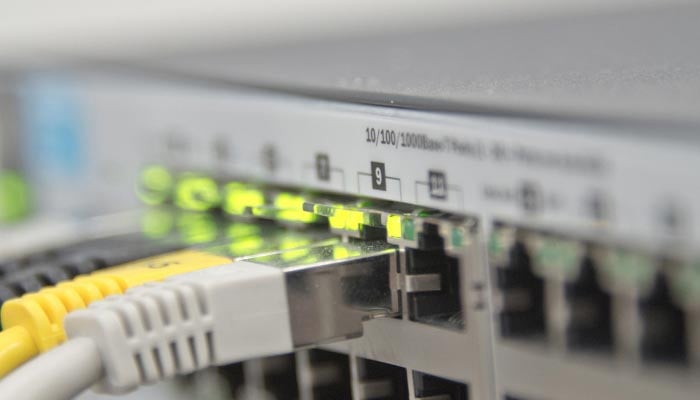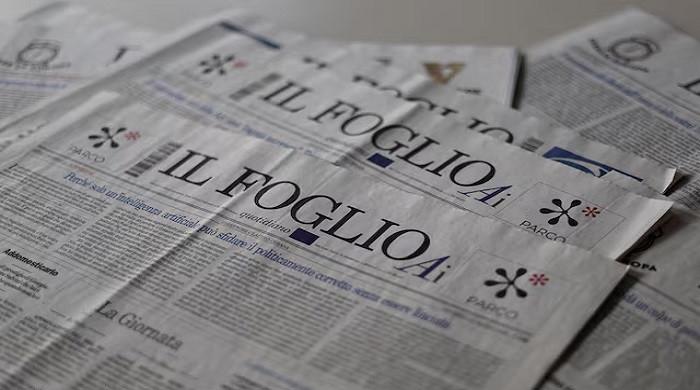No degradation of internet services, says PTA after temporary bandwidth fix
Ad hoc bandwidth added to system to address internet degradation due to fault in AAE1 submarine cable
January 04, 2025

- Temporary bandwidth incorporated in system to deal with internet issue.
- PTA says it is actively overseeing restoration for AAE-1 submarine cable.
- "PTA committed to ensuring that services remain stable during this period."
The Pakistan Telecommunication Authority (PTA) said on Saturday that there is no degradation of internet services across the country anymore after the issue was addressed through the incorporation of a temporary bandwidth into the system.
"[...] to address the issue of degradation of Internet services due to fault in AAE1 submarine cable on January 2, 2025 ad hoc bandwidth has been arranged and added in the system," the authority said in a brief statement.
The statement read that the PTA is actively overseeing the restoration efforts for the AAE-1 submarine cable and is committed to ensuring that all services remain stable during this period.
The authority had revealed last week said that the internet and broadband users may experience disruptions as submarine cable AAE-1 near Qatar developed fault.
The fault was reported in the submarine cable AAE-1 near Qatar — one of the seven international undersea cables connecting Pakistan for international internet traffic.
Pakistan has been grappling with slow internet since last year, with the government consistently blaming submarine cable faults, while reports hint at possible experimentation with a "firewall" by authorities.
The internet slowdown has been especially hard for freelancers, which are more than two million and contribute to the country's growth.
Not only have the courts been moved against slow internet as well as social media disruptions, but the government's allies have also expressed dismay over the persistent issues inside and outside the parliament.
In a swipe at his ally, the Pakistan Muslim League-Nawaz (PML-N), Pakistan Peoples Party (PPP) Chairman Bilawal Bhutto questioned why fish seem to target only Pakistan's undersea fibre optic cables.
According to a list issued by Ookla Speedtest Global Index, Pakistan was ranked 100 out of 111 countries in mobile internet speeds with a download speed of 20.61Mbps and upload speed of 8.53Mbps.
Meanwhile, the index ranked the country at 141 out of 158 countries in broadband speeds with a download speed of 15.60Mbps and upload speed of 15.53Mbps.
However, in a positive development last month, it emerged that a major undersea internet cable is being laid, which is expected to considerably enhance internet speed and reliability.
The project falls under the 2Africa Submarine Cable System, facilitated by the PTA through the Transworld Associate (TWA) as the landing party for the cable in Pakistan.
The 2Africa cable, stretching 45,000 kilometres, connects 46 locations across Africa, Europe, and the Middle East, with the use of state-of-the-art SDM1 technology with a capacity of 180Tbps.
Supported by a global consortium that includes Meta and Vodafone, the cable is expected to go live in Pakistan by Q4 2025, PTA had announced in a press release.
Installation started on December 1, 2024, as the first phase of the work, Pre-Lay Shore End (PLSE) installation included the cable landing at Hawksbay, Karachi. The second phase deep-sea laying of the cable is planned to start on April 1, 2025.
Once operational the cable will provide Pakistan with 24 terabytes of bandwidth. A French company is involved in installing the 45,000-kilometre cable.
The enhanced bandwidth will also improve the performance of platforms such as Facebook, WhatsApp, and Instagram.
Currently, Pakistan relies on approximately 8 terabytes of bandwidth provided by seven existing cables. The new system, connecting the African region to Pakistan, aims to improve connectivity and address long-standing complaints of slow internet speeds.











